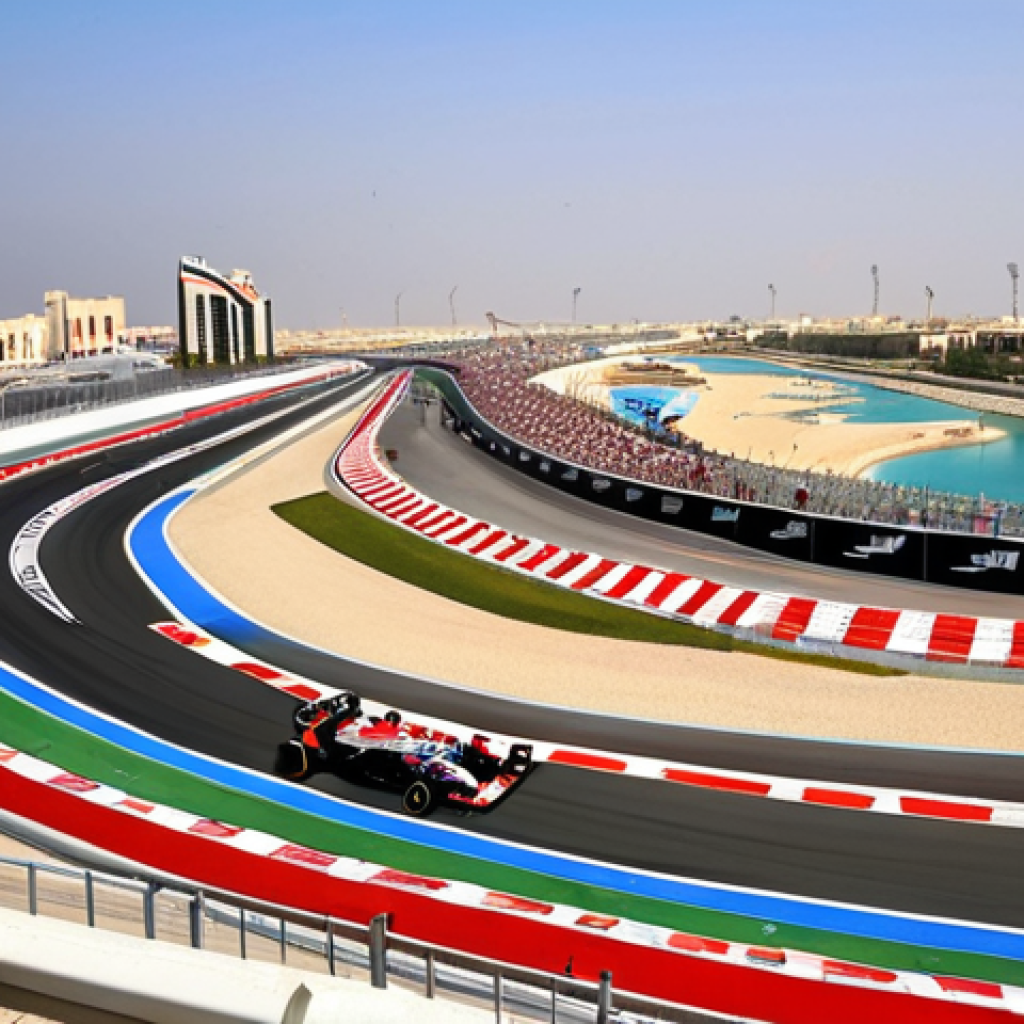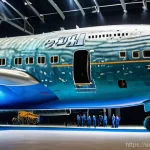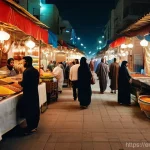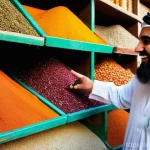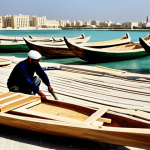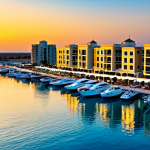Bahrain, a small island nation in the Persian Gulf, boasts a rich history deeply intertwined with the oil industry. Since the discovery of oil in 1932, it has been a pivotal force in shaping Bahrain’s economy and society, transforming it from a pearl diving hub to a modern state.
I remember visiting Bahrain and being struck by the contrast of traditional souks and gleaming skyscrapers, all fueled by the nation’s oil wealth. While the future of oil remains uncertain amidst global shifts towards sustainability, Bahrain is actively diversifying its economy.
Let’s delve deeper into Bahrain’s oil industry to understand its past, present, and potential future. Let’s get the details right.
A Glimpse into Bahrain’s Oil Discovery and Early Exploitation
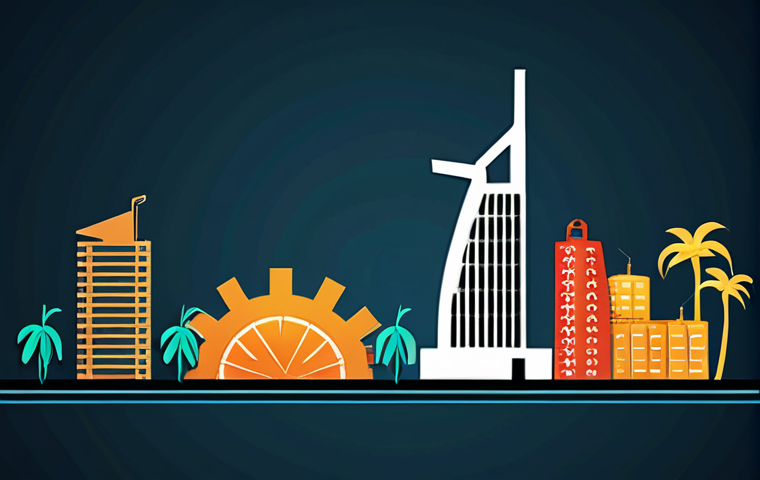
The Initial Discovery and its Impact
The discovery of oil in Bahrain in 1932 was a watershed moment, radically altering the nation’s economic trajectory. Before this, Bahrain’s economy heavily relied on pearl diving, a trade that was susceptible to market fluctuations and the discovery of cultured pearls. I remember reading about the hardships faced by pearl divers during the Great Depression, and the oil discovery came as a beacon of hope. It provided a stable source of revenue, enabling the modernization of the country’s infrastructure. The initial oil wells were modest compared to today’s giga-projects in Saudi Arabia or the UAE, but they were enough to set Bahrain on a new course.
Early Challenges and Development
The early days of oil extraction were not without their challenges. Bahrain had to quickly develop the technical expertise needed to manage and expand the oil industry. This involved establishing partnerships with foreign oil companies, primarily from the United States and the United Kingdom, which brought in the necessary technology and skills. It was fascinating to learn how quickly Bahrain adapted, sending young Bahrainis abroad for training in petroleum engineering and related fields. These early investments in human capital laid the foundation for Bahrain’s future economic growth.
Bahrain Petroleum Company (Bapco)
The establishment of the Bahrain Petroleum Company (Bapco) was crucial. Bapco played a key role in developing the oil fields, refining the crude oil, and exporting petroleum products. I recall visiting the Bapco refinery and being impressed by the scale of the operations. It became a major employer in Bahrain, providing jobs and training opportunities for thousands of Bahrainis. Bapco also contributed significantly to the country’s social development through investments in healthcare, education, and housing. The company’s success was intertwined with Bahrain’s national progress.
Diversification Efforts: Moving Beyond Oil Dependency
The Imperative for Diversification
While oil has been the backbone of Bahrain’s economy for decades, there has been a growing realization of the need for diversification. Oil reserves are finite, and the global shift towards renewable energy sources presents a significant challenge. I remember attending a conference where Bahraini economists discussed the urgency of diversification. The key is to move beyond oil and gas and develop other sectors that can drive economic growth. This isn’t just about survival; it’s about creating a more resilient and sustainable economy for future generations.
Key Diversification Sectors
Bahrain has been actively promoting several sectors to diversify its economy. Financial services have emerged as a major area of growth, with Bahrain positioning itself as a regional banking and finance hub. Tourism is another key sector, with investments in hotels, resorts, and cultural attractions. The Bahrain International Circuit, which hosts the Formula 1 Grand Prix, has also boosted tourism and put Bahrain on the global map. I’ve personally seen the influx of tourists during the Grand Prix, which brings in significant revenue.
Government Initiatives and Policies
The Bahraini government has implemented various initiatives to support diversification efforts. This includes providing incentives for foreign investment, streamlining regulations, and investing in infrastructure. The government has also focused on developing human capital through education and training programs that are aligned with the needs of the emerging sectors. I’ve noticed a strong emphasis on entrepreneurship and innovation, with the government supporting startups and small businesses through various funding and mentorship programs. These policies are crucial for fostering a more diverse and dynamic economy.
Bahrain’s Evolving Role in the Global Oil Market
Bahrain’s Oil Production Compared to Regional Giants
When we talk about oil production in the Middle East, countries like Saudi Arabia, Iraq, and the UAE often come to mind. Bahrain’s oil production, while significant to its own economy, is relatively modest compared to these regional giants. I’ve seen statistics showing Bahrain’s production as a fraction of Saudi Arabia’s, for example. However, Bahrain’s strategic location and its early entry into the oil market have given it a unique position in the region. It has been a pioneer in developing the oil industry, and its expertise and experience have been valuable to other countries in the Gulf.
Geopolitical Factors and Regional Influence
Bahrain’s oil industry has been influenced by various geopolitical factors. The country’s close relationship with Saudi Arabia and other Gulf states has been a significant advantage. Bahrain has also been an active member of OPEC, participating in discussions and decisions related to oil production and pricing. I recall reading about Bahrain’s role in mediating disputes between OPEC members. Despite its relatively small size, Bahrain has played an important role in shaping regional oil policies.
The Impact of Global Oil Prices
Like any oil-producing nation, Bahrain’s economy is heavily influenced by global oil prices. When oil prices are high, Bahrain benefits from increased revenue, which can be used to fund social programs, infrastructure projects, and other development initiatives. However, when oil prices fall, Bahrain faces economic challenges. I’ve witnessed how fluctuating oil prices have impacted Bahrain’s budget and its ability to invest in long-term projects. This underscores the importance of diversification to reduce Bahrain’s vulnerability to oil price volatility.
Technological Advancements in Bahrain’s Oil Sector
Modernization of Infrastructure
Over the years, Bahrain has invested heavily in modernizing its oil infrastructure. This includes upgrading refineries, pipelines, and storage facilities. The goal is to improve efficiency, reduce environmental impact, and increase production capacity. I visited a modernized refinery in Bahrain and was impressed by the advanced technology used to monitor and control the refining process. These investments are crucial for ensuring that Bahrain’s oil industry remains competitive in the global market.
Adoption of Advanced Technologies
Bahrain’s oil sector has embraced various advanced technologies to enhance exploration, extraction, and processing. This includes using seismic imaging to identify new oil reserves, implementing enhanced oil recovery techniques to increase production from existing wells, and adopting automation and artificial intelligence to optimize operations. I remember attending a seminar on the use of AI in the oil industry and learning about the potential benefits for Bahrain. These technologies can help Bahrain to maximize its oil resources and reduce costs.
Sustainability Initiatives
Sustainability has become an increasingly important consideration in Bahrain’s oil sector. The country has implemented various initiatives to reduce emissions, conserve water, and minimize environmental impact. This includes investing in renewable energy sources, such as solar and wind power, and adopting cleaner production technologies. I’ve seen Bahrain promoting the use of electric vehicles and investing in public transportation to reduce its carbon footprint. These initiatives demonstrate Bahrain’s commitment to environmental stewardship.
The Future of Oil in Bahrain: Challenges and Opportunities
The Peak Oil Debate
The concept of peak oil—the point at which global oil production reaches its maximum rate and then begins to decline—has been a topic of much debate. While it’s difficult to predict exactly when peak oil will occur, there’s a general consensus that oil resources are finite. For Bahrain, this means that it needs to plan for a future where oil may no longer be the dominant source of revenue. I’ve read reports suggesting that Bahrain’s oil reserves are dwindling, making diversification even more urgent.
The Rise of Renewable Energy
The global shift towards renewable energy sources, such as solar, wind, and hydropower, presents both challenges and opportunities for Bahrain. On the one hand, it could reduce demand for oil and lower prices. On the other hand, it could create new opportunities for Bahrain to invest in renewable energy technologies and become a regional leader in the sector. I’ve seen Bahrain investing in solar power projects and exploring the potential for wind energy. Embracing renewable energy could help Bahrain to diversify its economy and reduce its reliance on oil.
Strategies for a Sustainable Future
To ensure a sustainable future, Bahrain needs to adopt a multi-faceted approach. This includes continuing to diversify its economy, investing in renewable energy, promoting energy efficiency, and developing human capital. It also involves fostering innovation and entrepreneurship to create new industries and jobs. I believe that Bahrain has the potential to transform itself into a green economy, attracting investment and creating new opportunities for its citizens. The key is to embrace change and adapt to the evolving global landscape.
The Human Impact: Employment and Community Development
Job Creation in the Oil Sector
The oil industry has been a major source of employment in Bahrain for decades. It has provided jobs for thousands of Bahrainis in a variety of roles, from engineers and technicians to administrators and support staff. The industry has also created opportunities for training and career development. I’ve met many Bahrainis who have built successful careers in the oil sector, contributing to the country’s economic growth.
Community Development Initiatives
Beyond job creation, the oil industry has also contributed to community development in Bahrain. Companies like Bapco have invested in social programs, healthcare facilities, and educational institutions. These initiatives have improved the quality of life for many Bahrainis and helped to build a stronger and more prosperous society. I’ve seen examples of companies supporting local schools and providing scholarships for students to pursue higher education. These investments are crucial for creating a positive social impact.
The Future of Work in the Oil Sector
As technology advances and the oil industry evolves, the nature of work is changing. Automation and artificial intelligence are transforming many jobs, requiring workers to develop new skills and adapt to new roles. Bahrain needs to invest in training and education programs to ensure that its workforce is prepared for the future of work in the oil sector. This includes providing opportunities for reskilling and upskilling, as well as promoting lifelong learning. By investing in its people, Bahrain can ensure that its oil industry remains competitive and sustainable.
Economic Indicators and Trends
| Indicator | Value | Trend | Description |
|---|---|---|---|
| Oil Production (Barrels per Day) | Approx. 200,000 | Decreasing | Reflects Bahrain’s oil extraction rate; gradually declining due to mature fields. |
| Oil Revenue as % of GDP | Approx. 20% | Decreasing | Shows reliance on oil; decreasing as Bahrain diversifies economy. |
| Non-Oil GDP Growth | Approx. 4% | Increasing | Indicates successful diversification into sectors like finance and tourism. |
| Foreign Direct Investment (FDI) | Increasing | Positive | Measures capital inflows supporting economic expansion and diversification. |
In Conclusion
Bahrain’s journey through the oil era has been transformative, marked by initial prosperity and a growing recognition of the need for economic diversification. As Bahrain navigates the complexities of the global energy market and embraces new technologies, its commitment to sustainability and community development will be crucial. The future holds both challenges and opportunities, but with strategic planning and a focus on innovation, Bahrain can secure a prosperous and sustainable future for its people.
Good to Know Information
1. Current Crude Oil Prices: Stay updated on global oil prices via financial news outlets like Bloomberg or Reuters to understand their impact on Bahrain’s economy.
2. Bahrain’s Economic Vision 2030: This national strategy outlines Bahrain’s long-term goals for economic diversification and sustainable development.
3. The Bahrain International Investment Conference: An annual event that showcases Bahrain’s investment opportunities and economic reforms.
4. Renewable Energy Initiatives: Keep an eye on Bahrain’s projects in solar and wind energy through news releases from the Electricity and Water Authority (EWA).
5. Financial Services Hub: Explore the Bahrain Financial Harbour and learn about the regulations and incentives that make Bahrain a key financial center in the Middle East.
Key Takeaways
Oil Discovery Impact: Oil transformed Bahrain’s economy, but diversification is now vital.
Diversification Sectors: Finance and tourism are key to reducing oil dependency.
Technological Advancements: Modernization and AI are enhancing oil sector efficiency.
Sustainability: Bahrain is investing in renewable energy and environmental initiatives.
Future Outlook: Diversification and innovation are essential for a sustainable future.
Frequently Asked Questions (FAQ) 📖
Q: When was oil first discovered in Bahrain, and how did it impact the country?
A: Oil was discovered in Bahrain in 1932. From what I understand, this discovery was a total game-changer. Before oil, Bahrain was primarily known for its pearl diving industry, but the discovery of oil rapidly transformed it into a modern state with a booming economy.
I’ve seen photos of old Bahrain versus now, and honestly, it’s night and day!
Q: What evidence is there that Bahrain is actively diversifying its economy away from oil?
A: From what I’ve read, Bahrain is seriously pushing towards economic diversification. I’ve seen articles talking about major investments in sectors like finance, tourism, and logistics.
For example, they’re developing huge tourism projects, trying to attract foreign investment in tech startups, and building up their port facilities. It’s like they’re trying to create a safety net, knowing that the oil boom can’t last forever.
It’s a smart move, if you ask me.
Q: What challenges does Bahrain face in its efforts to diversify its economy, considering its historical reliance on oil?
A: Well, breaking free from a reliance on oil isn’t exactly a walk in the park. I mean, it’s been the backbone of their economy for almost a century! One major hurdle is probably attracting enough skilled labor and investment to these new sectors.
Plus, the global competition for investment is fierce. They also need to update their regulations and infrastructure to support these emerging industries.
It’s kind of like trying to steer a massive ship – it takes time and a lot of careful planning. And let’s be real, changing the mindset of a nation so accustomed to oil wealth is a challenge in itself.
📚 References
Wikipedia Encyclopedia
구글 검색 결과
구글 검색 결과
구글 검색 결과
구글 검색 결과
구글 검색 결과
